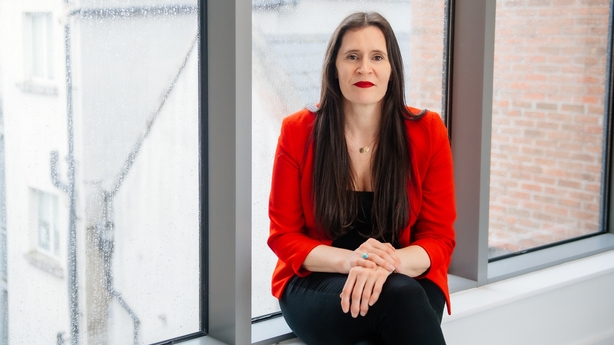Garda powers need to be exercised in a consistent and unbiased way, according to the Irish Human Rights and Equality Commission, which has called on the State to amend legislation to define and prohibit racial profiling.
The IHREC said the Garda Siochána (Powers) bill should include an express requirement to record the racial and ethnic origin of a person being stopped and searched and the location at which the power is exercised.
It also says the Garda Síochána (Digital Recording) Bill should prescribe the criteria for the selection of locations where CCTV is to be installed in order to safeguard against blanket surveillance of certain communities.
These are among the recommendations in a report by IHREC to the UN Human Rights Committee, which will be examining Ireland's obligations under the International Covenant on Civil and Political Rights next month.
The Commission submitted over 100 recommendations on policing, gender based violence and historic human rights abuses.
The IHREC expressed concern about the ongoing failure of the State to take full accountability for Ireland's "long and dark history of institutional abuse."
It pointed out that there continued to be widespread discrimination faced by Travellers; ongoing deficiencies in the State’s response to gender-based violence, including trafficking; the incompatibility of Ireland’s international protection framework with human rights obligations; and inadequate safe-guards to ensure access to justice and the rule of law.
"State action to eradicate structural and institutional racism, ableism, ageism and sexism is also required to ensure the equal protection of civil and political rights for all individuals and groups", it says.
It said there was an opportunity to future proof human rights commitments by putting in place protective measures to prevent human rights abuses following the pandemic as other crises emerge and intensify.
On gender-based violence, the commission called on the State to ensure adequately resourced provision of specialised and accessible services and refuge spaces across the country, and supports for victims of gender based violence to access services.
Alongside this, it stressed the importance of the State prioritising the improvement of disaggregated data on violence against women and domestic violence, to better understand how ethnic minority women access and experience domestic and sexual violence services.
On historical human rights abuses, it said identified perpetrators should be prosecuted and punished with penalties proportionate to the gravity of the offence.
It called for a detailed update on the financial contributions of religious congregations to redress.
"We must also ensure that redress schemes for past human rights violations are based on the right to truth, justice, reparation, non-recurrence and memory processes," it said.
The IHREC, which is Ireland's National Rapporteur on Human Trafficking, recommended that a new national referral mechanism be urgently progressed.
The aim would be to ensure that international protection could be pursued prior to, during or after victims are identified and that such victims have access to all rights and assistance available.
On reproductive rights, it called on the State to decriminalise abortion in all circumstances and ensure equality of safe and timely access to abortion across the entire country.
It pointed out that no draft legislation around safe access zones had been brought forward.
It also recommended that remote consultations for abortion services continue beyond the Covid-19 pandemic.
On conditions of detention, it suggested that the State prioritise greater use of alternatives to imprisonment and remand detention to address prison overcrowding and improve prison conditions, particularly for groups over-represented in the prison population.
Chief Commissioner Sinéad Gibney stressed the importance of Ireland setting out in public to the UN how it is meeting its human rights obligations.

In a statement Ms Gibney said "The specific use of police powers by the State can disproportionately impact marginalised individuals and groups, which is why it's so important to ensure they are exercised in a consistent and unbiased way.
"Across the globe we’ve seen examples of how bias can negatively affect community policing, and it’s crucial that the current consolidation of Garda powers ensures effective oversight."
State representatives will be questioned when they go before the UN Committee in July.







